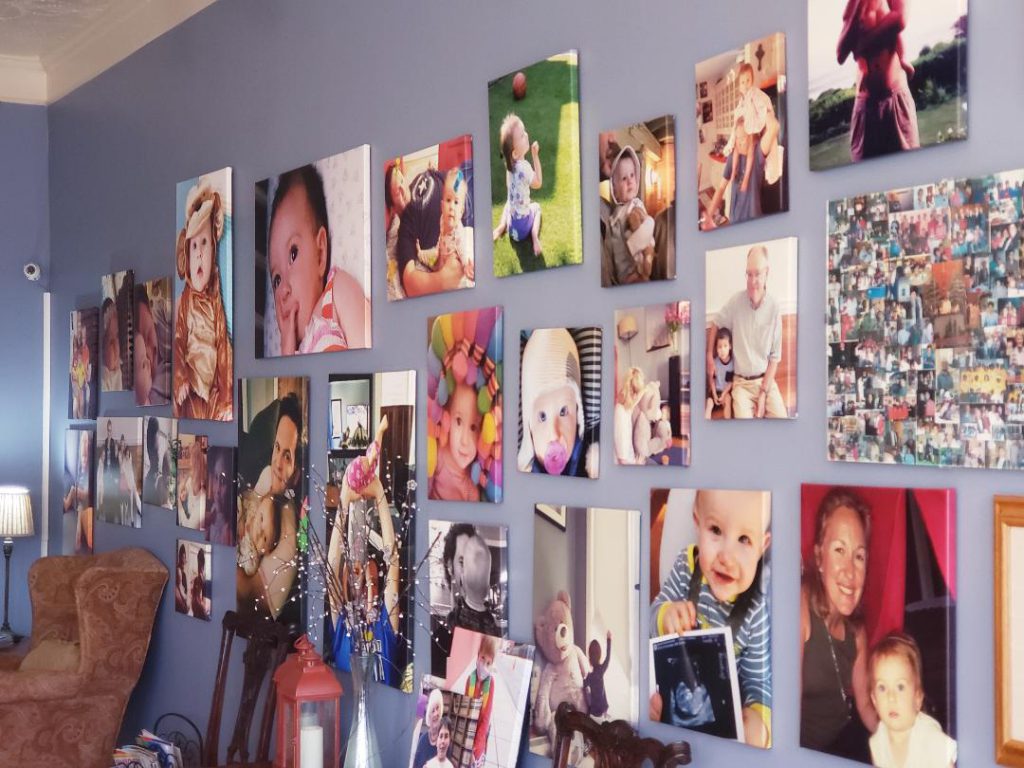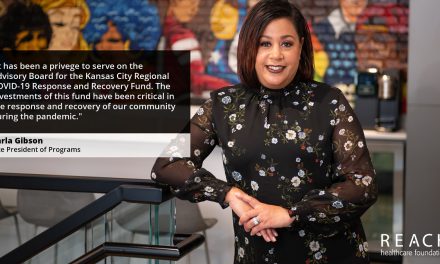In March 2020, the Missouri Department of Social Services (DSS) reported seeing an approximately 50% drop in Child Abuse and Neglect Hotline Calls, prompting concern from the government including Governor Mike Parson. “I know Missourians are very focused on COVID-19, but we must remain vigilant in our efforts to ensure every Missouri child remains safe from abuse and neglect,” Parson said in the DSS press release.
According to Missouri KidsFirst, a statewide network of individuals, programs, and organizations working to end the cycle of child abuse in local communities, rates of child abuse and neglect increase during times of crisis and economic stress such as the COVID-19 pandemic. Children staying home miss going to places where they interact with adults who can look out for signs of abuse or neglect, such as school, daycare, and church.
Robin McGinnity Connelly is an attorney now retired from practicing child advocacy law working with Court Appointed Special Advocates (CASA) in Lexington, Mo. and Marshall, Mo. in the 15th judicial circuit. CASA recruits, trains, and manages citizen volunteers to speak for abused children in court. Connelly stresses the importance of children experiencing abuse or neglect having a stable and compassionate advocate looking out for them and CASA’s “beautiful mission.”
CASA’s mission
Connelly recalls working as an attorney in Washington, D.C., where she visited kids at their homes and was mocked by peers saying she’s a social worker at heart. “I would look at them and think, how can you go to court and speak for a child if you don’t know the child?” When she found National CASA in Missouri, she was delighted to find a founding judge who had the same idea. “It’s silly to take recommendations about what to do with a child, what services they need, what placement they should go to, unless they know the child.”
When child abuse is reported to the Missouri hotline, they go through a checklist before substantiating the claim and sending either a case worker or police officer to the home. Once the hotline system has been activated, the child has been removed from the home, and the move adjudicated by a judge, CASA in the 15th judicial Circuit steps in. “We come in when the child is in the system to make sure they are safe while in the system and find the best outcome as soon as possible while they are a foster child.”
CASA volunteer commitment takes anywhere from one to three years and includes visiting the child once a month, writing reports three to four times a year, attending meetings for the child, double checking that the parents are doing everything they need, are receiving the services they need and that the services are working. “Often we are the only ones in the room who make that assessment,” Connelly says. “We don’t just throw services at parents; we make sure that they are implementing what they’ve learned. It’s a wonderful mission and we need all the volunteers we can get.”
Spotting child abuse and neglect
While it’s important not to have a set “checklist” of warning signs of abuse and present the opportunity to read into something incorrectly, according to Connelly there are a few common signs that should be taken seriously. One major red flag is an adult caregiver lurking and not allowing a child to be interviewed alone. CASA volunteers make sure to never be alone in an enclosed area with a victim but will attempt to interview the child in a separated area from the adult. “If the child has something to say, they are free to say it,” says Connelly. However, if their parent hovers and refuses to leave the child alone with any social workers or other advocates, this could be covering a larger problem. Connelly recalls a famous case in Kansas City of Ms. Ross, a woman whose children were taken from her and later returned. She lurked over her children in interviews so when asked if everything was okay, the children always said yes. “In fact, there were horrific abuses going on but the children weren’t free to speak up. Keeping a child away from an adult conversation is a red flag.” Her son, Nathan Ross, is now a renowned advocate for other abused children.
Besides lurking, other signs include bruises, lack of nutrition and lack of cleanliness. These are red flags teachers, who are mandated reporters of abuse similar to CASA volunteers, look for as well as kids who frequently skip school, don’t eat at school, or fall asleep while in school. “There are a lot of flags that indicate that someone should have a conversation to see if the child is okay.” With schools closed due to the COVID-19 pandemic, children are missing out on that compassionate adult advocate.
Other impacts of COVID-19
The pandemic has also brought on multiple severe stressors including job loss, loss of health insurance, loss of income, and general fear and anxiety over the virus itself. The combination leads to increased rates of substance abuse which further worsens an abusive household for a child. Connelly fears a recent case of the death of two siblings is the result of these factors. “We think it’s due to COVID-19, parents who can’t cope with loss of job, quarantine, stress, so there’s an increase in alcohol and drug use. If people see that someone is using or dealing drugs, drinking lots of alcohol, has a lack of attentiveness, or if there are neglect or abusive signs evident – it’s time to call the Missouri hotline and make sure the government gets involved.” The Missouri Hotline Number is 800.392.3798.
Connelly worries that the combination of COVID-19 isolation, quarantine, and economic stress might increase rural Missouri’s already large substance abuse problem which will similarly impact child abuse cases. “Most of the cases we see are parents who just can’t kick the habit. Sadly, they choose drugs over their children. If someone is trying to quit, it may be easier to continue or even magnify substance use due to the circumstances.”
CASA volunteers have great responsibility, greater rewards
CASA needs volunteers to continue advocating for children, especially those impacted by increased opportunities for abuse due to the pandemic. Volunteers must be 21 years old, have a high school diploma, and be ready to give 100%. Retired people, compassionate people, nurses, teachers, parents, and anyone with a sense of child development make great citizen volunteers. CASA volunteers receive great responsibility during their commitment as well as plenty of supervision, advice, guidance, and cheering along the way.
Connelly recalls her most heartwarming experience since she began working with CASA in 2006. After working with a young man for an extended period, a CASA volunteer noticed his behavior spiraled every time he had supervised visits with his mother who shared the same mental illness. The CASA volunteer was advised to halt the supervised parental visits. Although not normal procedure, the judge-ordered visitation stopped — a move based on case facts.
The young man quickly improved and was moved from residential placement into a foster home. At his permanency hearing at age 16, his foster mom told the judge they loved him and wanted to adopt him. “Joe,* completely caught off guard, turned to his CASA volunteer and said, ‘Peggy, I love you!’ He knew that his CASA volunteer had walked the distance with him for several years until he found his forever home.”
CASA has adapted its training to virtual platforms and methods due to COVID-19 and are actively seeking more volunteers. CASA volunteers receive 32 hours of training covering how to visit a child, build a trusting relationship, child development, Juvenile court history and law, write court reports, speak in court, and make court recommendations.
For more information about becoming a CASA volunteer in Lafayette our Saline Counties, please call 660.259.2590. Feel free find CASA on Facebook.
*Name has been changed.
CASA’s “Wall of Love” featuring children and families who have been reunited or adopted.









